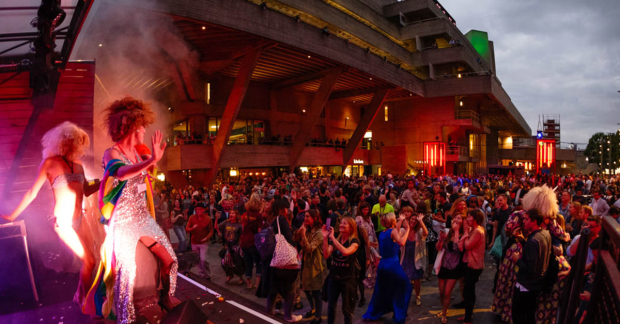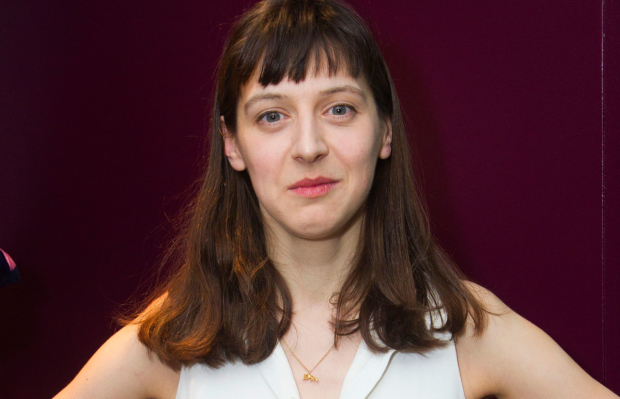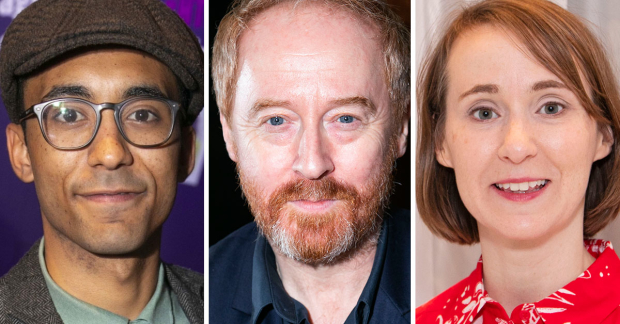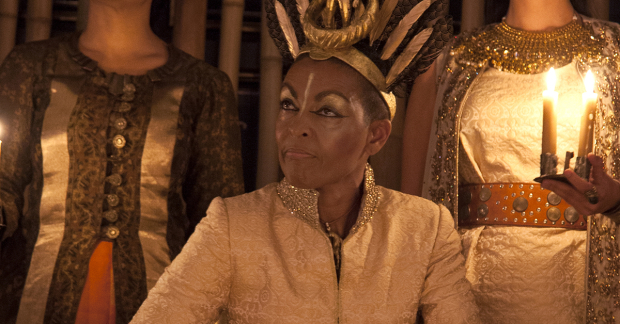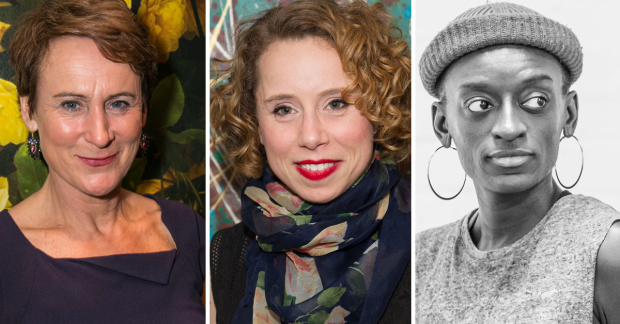Henry IV Parts I and II (Shakespeare's Globe)
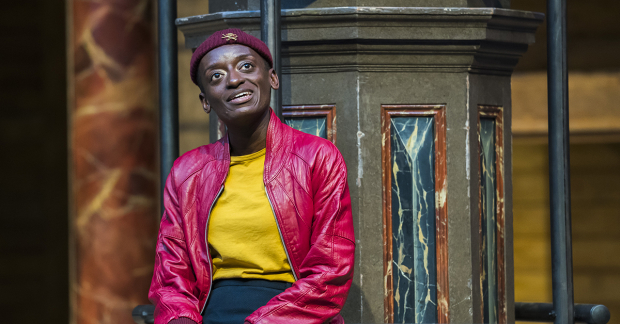
© Tristram Kenton
An attempt has been made to reposition Shakespeare's history plays somewhat in this latest of their outings at Shakespeare's Globe. Part I is subtitled Hotspur, while Part II is subtitled Falstaff. The intention is to address the recurring questions of which character these pieces are actually about. But really their new names make little difference: here's all of life's knots and twists, kings and clowns, fathers, sons and daughters bound up around the narrative thread of Prince Hal's eventual ascension to the throne.
They are thorny, war-heavy plays filled with exposition which, if done well, can be gloriously entertaining. And here directors Sarah Bedi and Federay Holmes, with a remarkably small ensemble across all three plays, make them just that.
The plot of Part I follows bawdy Prince Hal, who hangs about with his cheating, drunk of a friend Falstaff and his cronies, rather than being the good heir to the throne that his father, Henry IV, wants him to be. Then there's the same aged, but very different Hotspur – hot headed by name and nature – who is mounting a rebellion against the king. It takes a while for Hal to step up, but once he does he pulls it out of the bag, proving himself a worthy soldier and a good son.
Part II, much less fun and more exposition heavy, displays the continued transition of Hal, who is distanced from Falstaff, and Falstaff, whose beery, wayward antics continue throughout several more battles against threats to the throne. But by the end, when Hal is crowned king, we witness his ruthless casting aside of his old rotund friend. The boy becomes a king.
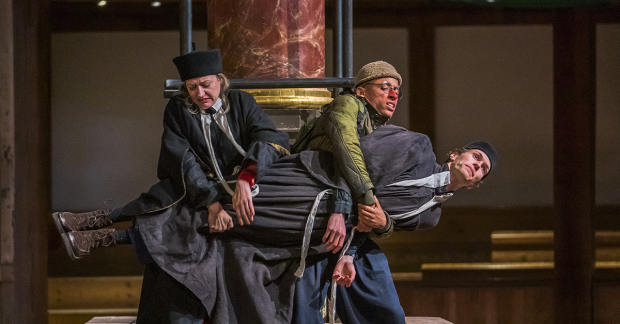
© Tristram Kenton
It's fair to say that these plays live or die by whoever plays Falstaff and this ensemble has a worthy wit in the form of Helen Schlesinger. Though she's got the signature belly, she's much more fast and agile than any Falstaff I've ever seen. But her comic timing and connection to the audience is beguiling. She's a bright-hearted rogue, whose intelligence and cunning shines out in equal measure. Michelle Terry's Hotspur is also excellent. Terry imbues him with a sense of teenage angst, rings and tattoos betraying the character's rebellious nature. Her performance is filled with fire and anger and she is both funny and compelling to watch.
The line-through of both plays, however, is Sarah Amankwah's Hal. Delivering the verse with impecible grace and pace, Amankwah demonstrates the prince's journey beautifully. Filled with impish good humour to begin with, by the end she is a towering, regal figure, her voice grave and deep.
It is these three who are are the central beating hearts of these first two plays in the trilogy, but the entire ensemble are nevertheless a joy to watch. I loved John Leader's goofy Bardolph and Jonathan Broadbent felt right at home in his pink-edged dress as Hostess Quickly.
Bedi and Holmes' conceit is to keep thing simple, casting both gender and colour blind and pushing the pace with scenes crossing through each other. We see actors change onstage between characters, which helps us keep up with the many turns in the story, but it keeps us entertained too. They have kept the comedy loose, allowing the actors ad libbing space – there were several moments the audience lost their beers to Falstaff's clutches and Schlesinger's throwaway delivery of "Alexander Hamilton" from Hamilton was also a nice touch.
While Part I flies by, Part II is a harder watch. That's mainly because it feels as though it is winding down from the last play and building up to Henry V. But still, there are some lovely moments in the second piece, not least the scenes between Falstaff and Sophie Russell's Shallow. They are both a ridiculous blast.
This is a tight ensemble at its peak and the productions offer sleek, excellently funny interpretations of the works, telling the stories of kings and humans with a brilliant clarity.



